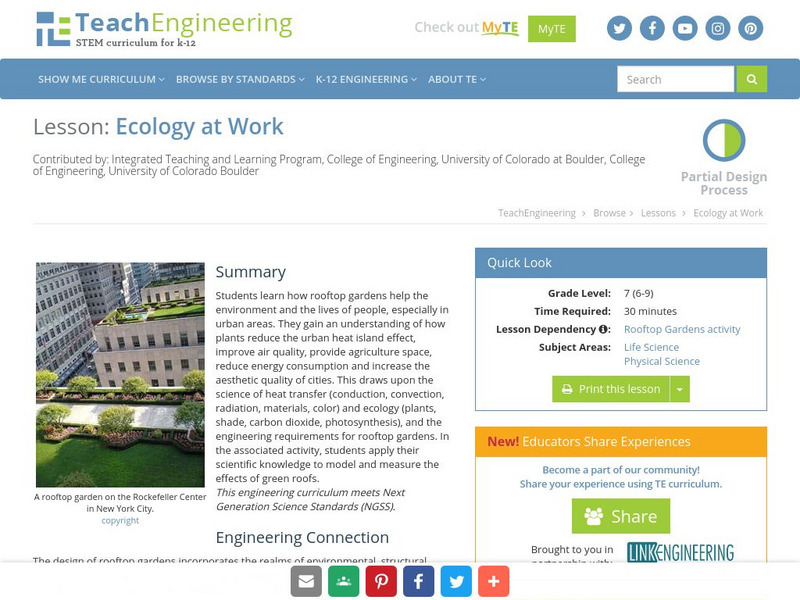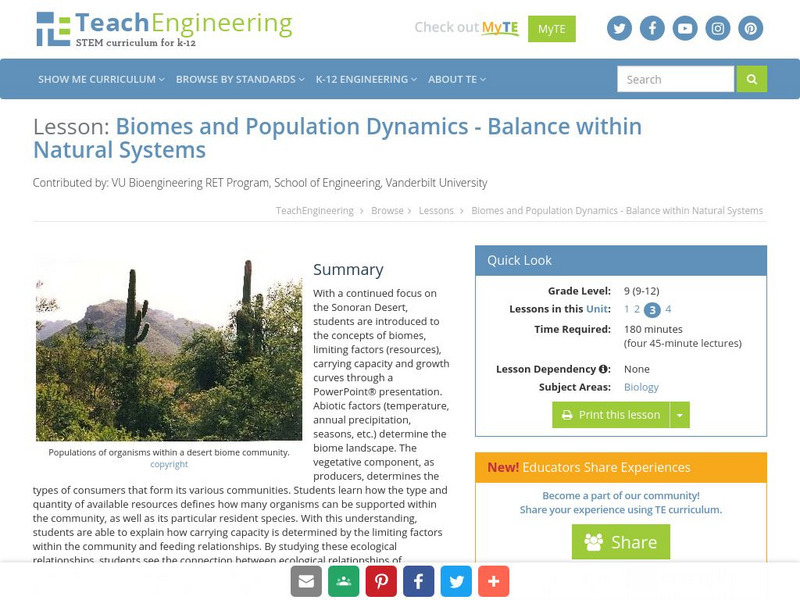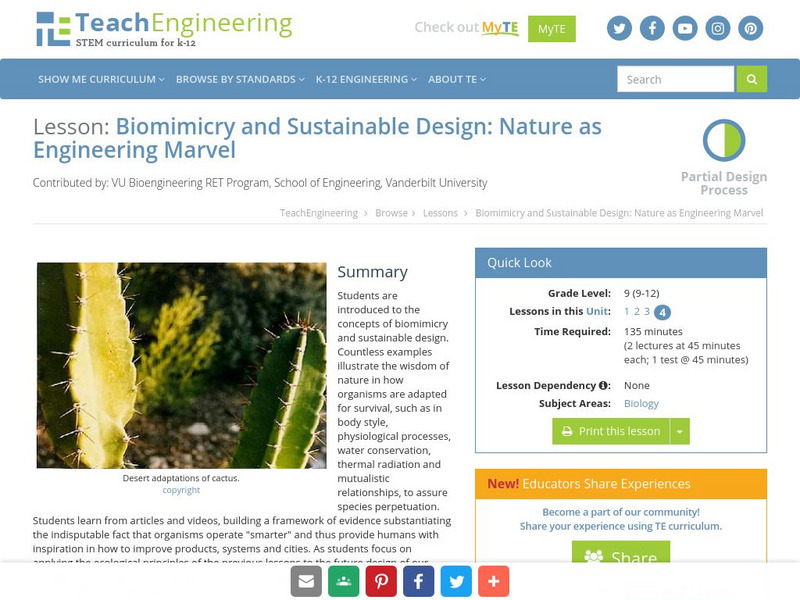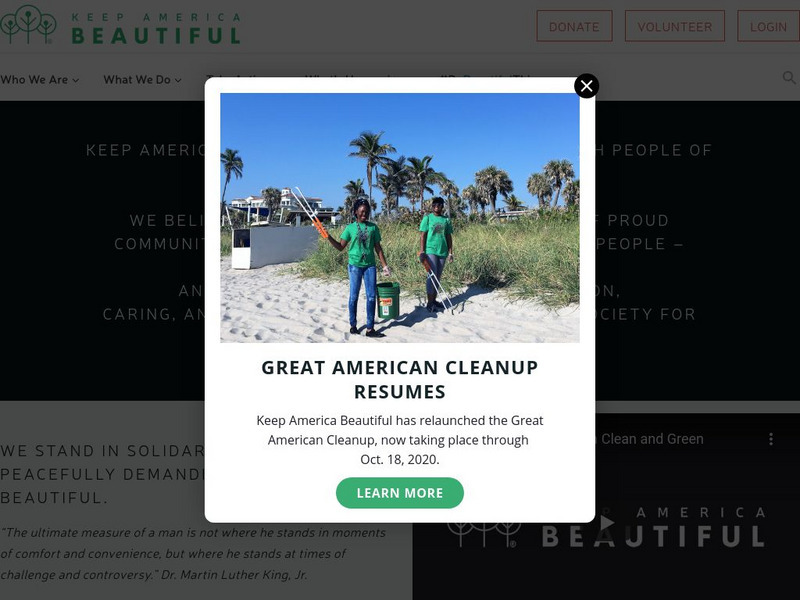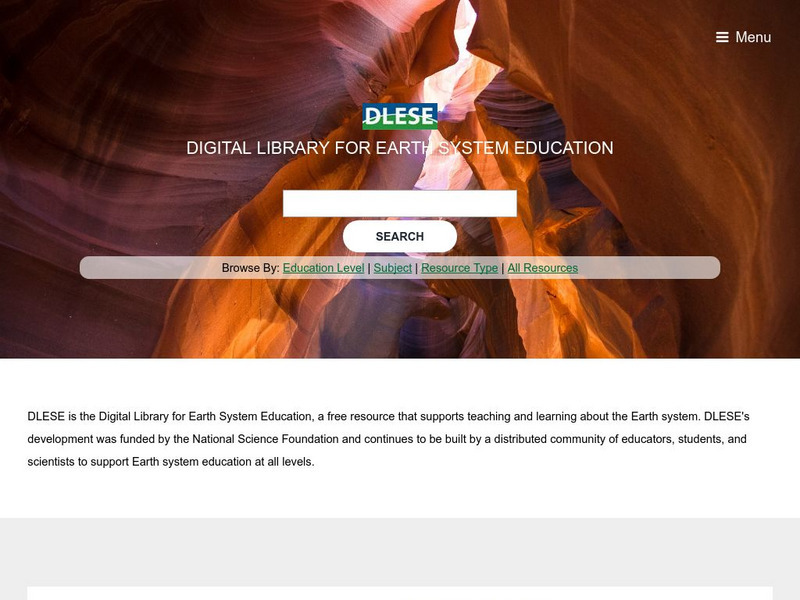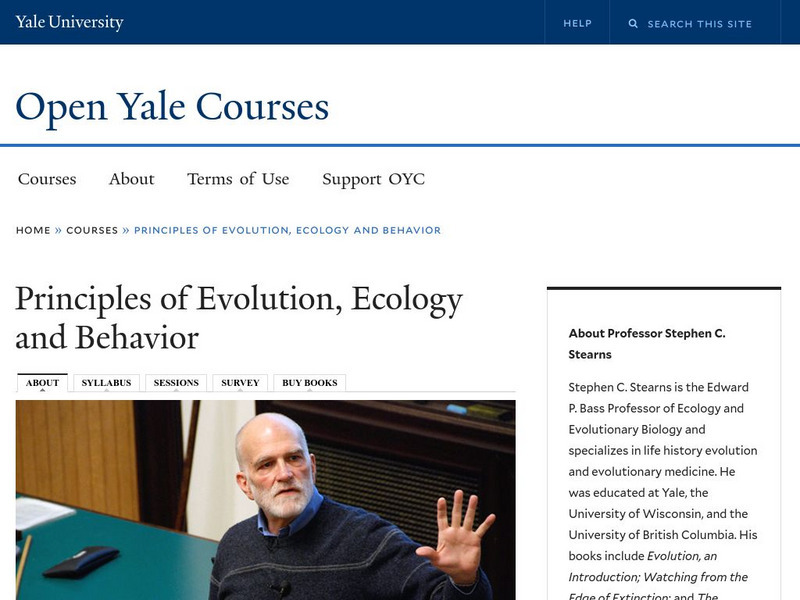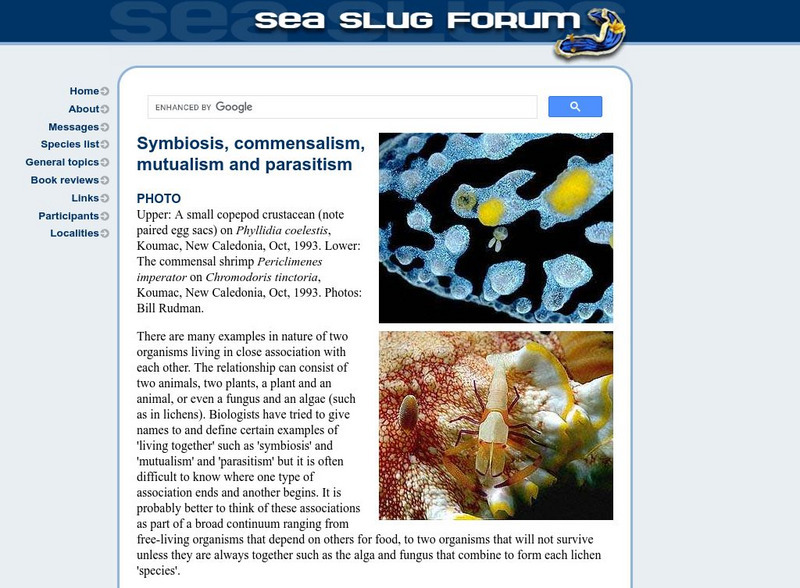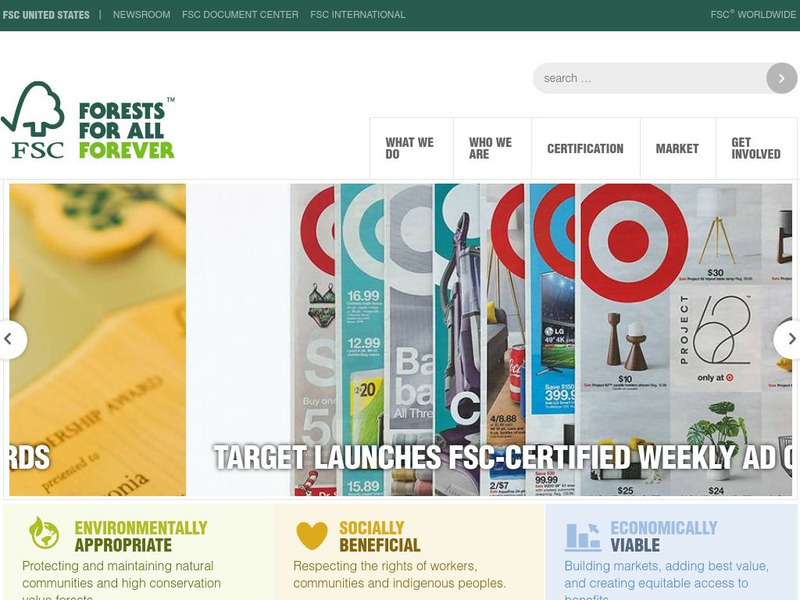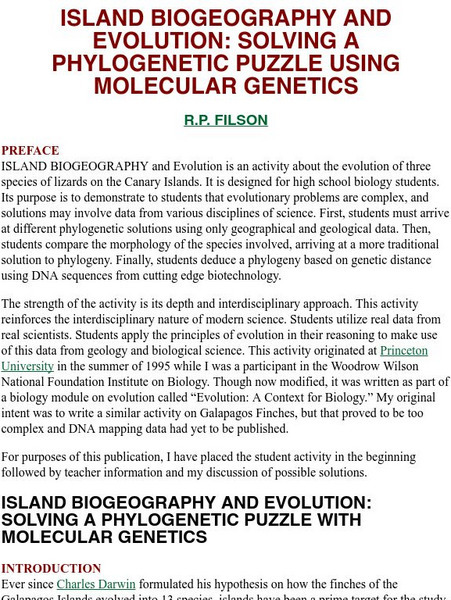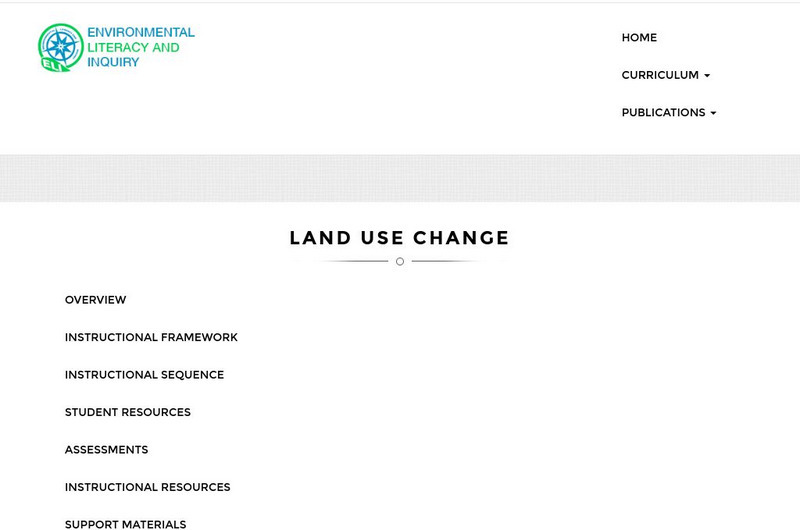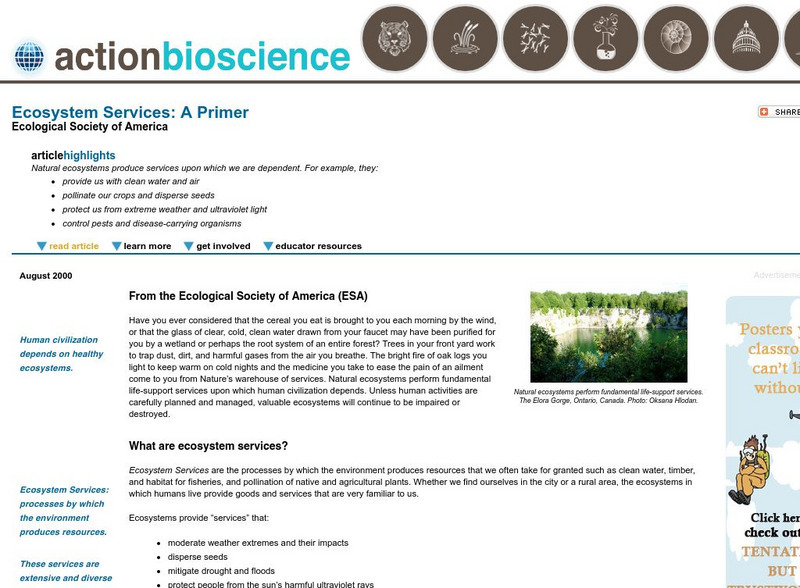TeachEngineering
Teach Engineering: Ecology at Work
Students learn how rooftop gardens help the environment and the lives of people, especially in urban areas. They gain an understanding of how plants reduce the urban heat island effect, improve air quality, provide agriculture space,...
TeachEngineering
Teach Engineering: What Will Biodegrade?
Students investigate what types of materials biodegrade in the soil, and learn what happens to their trash after they throw it away. The concepts of landfills and compost piles will be explained, and the students will have an opportunity...
TeachEngineering
Teach Engineering: Designing a Sustainable Guest Village
This lesson introduces students to their task of designing a permanent guest village within the Saguaro National Park. The design must provide a true desert experience to visitors while also emphasizing sustainable design, protection of...
TeachEngineering
Teach Engineering: Food Chains and Food Webs
This lesson, supported by the provided power point lecture (LESSON 1 and 2 Ecology Lecture Supplement ), introduces young scholars to the concepts of food chains and food webs. Through its use, students learn the difference between...
TeachEngineering
Teach Engineering: Biomes and Population Dynamics
This lesson begins with a PowerPoint slideshow that covers important ecological concepts about biomes, limiting factors, carrying capacity, and population growth. Learners will look at the population dynamics involved with the diversity...
TeachEngineering
Teach Engineering: Nature Is an Engineering Marvel
This lesson introduces learners to the concepts of biomicry and sustainable design. Students will learn to illustrate the wisdom of nature by demonstratiing how organisms adapt to their environment.
Other
Alaska Sea Grant: Investigation 4 Human Impact Survey
Students examine and record data about the impact human activity has on a local aquatic environment in this teaching unit. They then analyze the information and develop a plan for improvement. The unit depends on being able to take the...
Other
Keep America Beautiful: How Will You Keep America Beautiful?
An umbrella organization with hundreds of affiliate groups across the United States, whose goal is to educate and motivate people to reduce their litter by recycling, reusing, disposing of things properly, and by changing their consumer...
Other
National Environmental Education Foundation
Have you always dreamed of having a career working to help the environment? Here, find information about student involvement, internships, grants and contests, green jobs, and environmentally-minded colleges.
Other
The Habitable Planet Simulation
This activity is designed to accompany an interactive on the Annenberg Learner website. Students investigate the changes that take place in an ecosystem when they alter the organisms in a food web. As they work with the simulation, they...
Other
Digital Library for Earth System Education
This site from Digital Library for Earth System Education provides materials for students and teachers on a huge array of topics. Search site by topic, grade level, and desired output (such as lesson plan, case study, assessment or...
Other
Ecologistas en Accion
Spanish content; this is the main page "Ecologistas en Accion" or "Environmentalists in Action" which works to promote environmental awareness and action in Spain.
Geography 4 kids
Geography4 kids.com: Biosphere: Ecosystems
Ecosystems is an excellent resource for understanding what an ecosystem is and goes on to explain the types of ecosystems, known as biomes. Check out the wonderful panoramic photographs of different biomes.
Yale University
Open Yale Courses: Principles of Evolution, Ecology, and Behavior
Access any one of thirty-six lectures from a biological sciences course, in audio, video, and text format. Coverage includes evolution, natural selection, the fossil record, the history of life on Earth, ecological communities,...
Annenberg Foundation
Annenberg Learner: Habitable Planet: A Systems Approach to Environmental Science
Interdisciplinary multimedia course, in thirteen units, on environmental science. Each unit encompasses a thirty-minute video, an accompanying textbook chapter, and an array of visuals and animations. With five interactive labs, a...
Other
The Sea Slug Forum: Symbiosis and Commensalism
Question and answer site that contains a discussion of commensalism as it pertains to sea slugs. Nice photographs of aquatic commensalistic relationships.
Other
Forest Stewardship Council: United States
This resource explains the purpose of certifying forest products from ecologically sustainable forests and sets the standards by which certifications are evaluated. Describes the diverse membership of the organization and its goals.
Tramline
Tramline: Getting Green Virtual Field Trip
In this comprehensive website, students will learn about different forms of pollution, environmental impact of pollution, global warming, and things they can do to make a difference.
University of California
Ucmp: Island Biogeography and Evolution
This is a lesson designed by a biology teacher. In it, students use maps and evidence of island age, molecular genetics, morphology, and distance apart to determine how the islands came to be occupied by different species of lizards. It...
Other
Lehigh University: Land Use Change
An inquiry-based science unit for middle school students centered on how human activities affect environmental changes related to land use. The lessons integrate technology and lab activities while teaching about today's land use and how...
Massachusetts Institute of Technology
Mit: Open Course Ware: Courses: Civil Environmental: Ecology I: The Earth System
College-level online course highlighting the fundamentals of ecology. Course topics include coevolution of the biosphere, geosphere, atmosphere, and hydrosphere; photosynthesis and respiration; and the carbon, nitrogen, and water cycles....
American Institute of Biological Sciences
Action Bioscience: Ecosystem Services: A Primer
It is humans' responsibility to take care of the Earth's many ecosystems. Many of the daily things we take for granted - e.g., clean water and air, pest control, and protection from severe weather - are results of healthy ecosystems....
Georgia Department of Education
Ga Virtual Learning: Biology: Ecology Ii
Through a series of multi-media learning activities, students will assess the dependence of all organisms on one another and the flow of energy and matter within their ecosystems.
CPALMS
Florida State University Cpalms: Florida Students: Changing With the Times: Variation Within Ecosystems
A tutorial investigating how living organisms in an ecosystem are affected by environmental changes.


